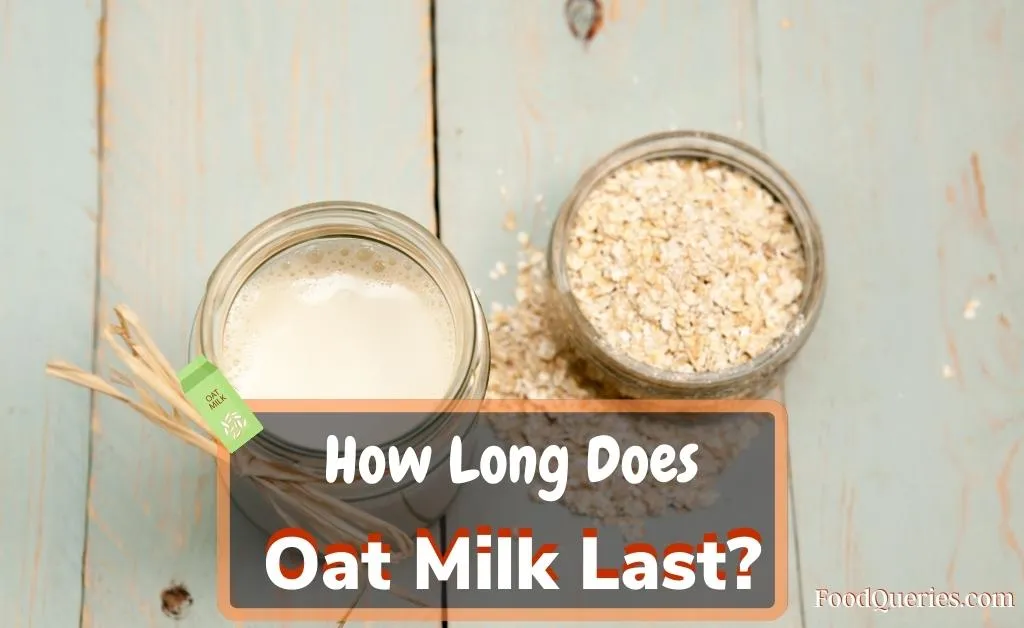It is that time of the year when you crave a deliciously juicy and tangy flavor. You guessed it right! The tropical season of orange is here!
Seeing the tempting oranges in the grocery store can make you buy more than you need. And trust me, you will, or you might have already.
But what to do with the big oranges, and how long do oranges last at room temperature?
At room temperature, whole oranges can last for up to 2 weeks. Storing them in the fridge can extend their life up to a month. Peeled/cut oranges must be consumed fast, as they only last for a few days in the fridge. Peeled oranges must be consumed at room temperature within 4-5 hours.
Extending the shelf-life of oranges is a smooth process if you know how to do it. This article will discuss how oranges can be stored and their shelf-life. Read further to know more about oranges.
Can oranges go bad?
Like all fresh fruits and anything consumable, oranges can also go bad. They last for 2-3 weeks at room temperature from when they were plucked. So, if you are buying oranges, they are most likely already a week old. This means their shelf life will be around a week or two when you buy them.
To prevent the oranges from going bad, store them in the refrigerator. Refrigerating oranges in the vegetable drawer can extend their life to two months.
Cut or peeled oranges tend to go bad faster than whole oranges. Thus, peeled/cut oranges must be refrigerated and consumed within a day or two. You can also seal the oranges and store them in the fridge away from direct sunlight. This will keep the oranges fresh for a long time.
How to store oranges the right way?
Oranges are as easy to store as any other tropical fruit. Mentioned below are different ways to store oranges.
1. Whole oranges at room temperature
Whole oranges survive well at room temperature long as you finish them in a week. A pantry or leaving them in a fruit basket will make them last for 1-2 weeks. Leaving them at room temperature will not alter their taste and will help them retain the juices.
2. Refrigerating whole oranges
Want to store oranges for more than a month? Refrigerating is the way to go. Although refrigerating the oranges will slightly alter the taste of the fruit. It will, however, make the fruit last longer. So, if you buy oranges in bulk, you can refrigerate them and enjoy them later.
3. Peeled or cut oranges
Have leftover peeled or cut oranges lying around? The best way to store them is by refrigerating them. You can place the peeled pieces in an airtight container. You can also use a resealable bag to store the orange chunks.

TIP: If you have more oranges than you can handle, juice them. Orange juice lasts only for a couple of days. So, ensure you consume it before that duration and refrigerate the remaining.
How Long Do Oranges Last? Storing and Buying Tips
Whether you have ripe, under-riped, or peeled oranges, here are a few handy tips. With these tips, store oranges for longer while maintaining their freshness.
1. Check for ripeness
When buying oranges, it is better to use ripe ones over over-riped ones. Ripe oranges last longer and will taste better over time. Overripe oranges, however, will rot quickly. Planning to buy under-riped oranges? Well, a fact: citrus fruits do not ripen once they are picked. Therefore, you must buy only the ripe ones.
2. Avoid direct sunlight
Exposing the oranges to direct sunlight will make them go bad faster than expected. The best place to store oranges is in a cool, dark place. You can also put the oranges in the vegetable crisper in your refrigerator.
3. Keep your oranges dry
Washing your oranges and storing them wet can make them go bad. Before putting them in the refrigerator, dry them with a paper towel. Leaving the oranges wet can make them a breeding ground for mold. So, make sure to dry the oranges before storing them.
Can You Freeze Oranges?
Freezing is a good option if you want the oranges to last a long time. If frozen properly, oranges can last up to 5-6 months. But it won’t be wise to freeze whole oranges. Due to their high water content, freezing oranges whole will break the walls apart. This will make the oranges soft and mushy, rendering them inconsumable.

So, what is the right way to freeze the onions? An ideal way to freeze them is by peeling, sectioning, and removing their seeds. You can also coat the peeled slices in sugar syrup and place them in a sealed container.
Leave the frozen oranges at room temperature to defrost them. It will take about 5-6 hours for the frozen pieces to defrost. If you coated the pieces with syrup, drain the sugar syrup and rinse the oranges. Once the oranges defrost, you will notice a change in their texture. However, it is safe to use them for any recipe.
Tip: Defrosted oranges must be kept for at most 3-4 days. Consume them within a couple of days to get the flavor.
Can You get sick from eating bad oranges?
Consuming anything that has gone bad is likely to make you sick. So, if you consume old oranges (bacteria-laden or moldy), you can get sick. You can encounter food poisoning and diarrhea, vomiting, and abdominal pain. However, if you eat old soggy oranges, you might be able to walk fine. So before you go all in with the oranges, look for signs of spoilage.
How To Tell If Oranges Are Bad?
Even with their thick skin, oranges can go bad. And the signs of spoilage in orange are not that difficult to spot. Look for the following signs when looking for sour oranges:

1. Visual changes
A common sign of a sour orange is discoloration on the rinds. If you see some minor discolored spots, the orange is probably good. But if the discoloration spreads throughout, it is time to throw away the fruit. If left for a long time, you can also see molds forming. Once they appear, throw away the oranges.
2. Texture alterations
Fresh orange is firm and bright with a very fresh smell. It has gone bad if you feel the fruit is mushy or wrinkled.
3. Off smell
Suppose you find the fresh zest smell replaced by a rotten smell. An off-smell is a clear indication that the fruit is rotten and inedible. You must throw away the fruit.
4. Check the pulp
Before you think the fruit is all good, check the insides. The fruit is already bad if the pulp has a darker shade.
Frequently Asked Questions (FAQs)
Q1. How do you know if oranges have gone bad?
Ans. Oranges that have gone bad will display signs of spoilage. The texture or the rind will be discolored and spotted. The orange will begin to smell sour and rotten. The pulp will go a shade or two darker than a fresh orange. A bad orange will taste bitter and feel mushy than a fresh one.
Q2. How do you keep oranges fresh for a long time?
Ans. A sure-shot way to extend the shelf-life of oranges is by storing them in the refrigerator’s crisper drawer. You must allow the oranges to breathe when storing them at room temperature. Therefore, storing them in a mesh cloth or letting them sit on a basket will allow them to retain their freshness.
Q3. Should you keep oranges in the fridge?
Ans. Yes. You can keep oranges in the refrigerator. This will extend their shelf-life and allow them to stay fresh for a long time.
Q4. Why do oranges last longer in the fridge?
Ans. Oranges last longer when refrigerated because of the cold temperature. Compared to room temperature, the refrigerator prevents mold and bacteria growth. Thus, refrigerating makes oranges last longer and helps retain their freshness.
Q5. Can old oranges cause food poisoning?
Ans. No. Old oranges can be safely consumed without causing food poisoning. However, if you consume an orange that has mold growing, you can get food consuming. Therefore, look for a sour smell or discoloration of the pulp to ensure the orange is safe to consume.
The Bottom Line
Oranges are the perfect fruit to savor on a hot, humid day. Not only does it make up for a refreshing drink, but it is also the best tropical fruit. But like all tropical fruits, oranges don’t last long. However, with the tips mentioned in this article, you can extend their shelf-life.
If the oranges are lying for a long time in the pantry, make sure to take a quick test. Before using them in your recipes, look for spoilage signs (smell, appearance, texture). Testing the quality will keep your recipe (you want to add oranges) and your health in check.









